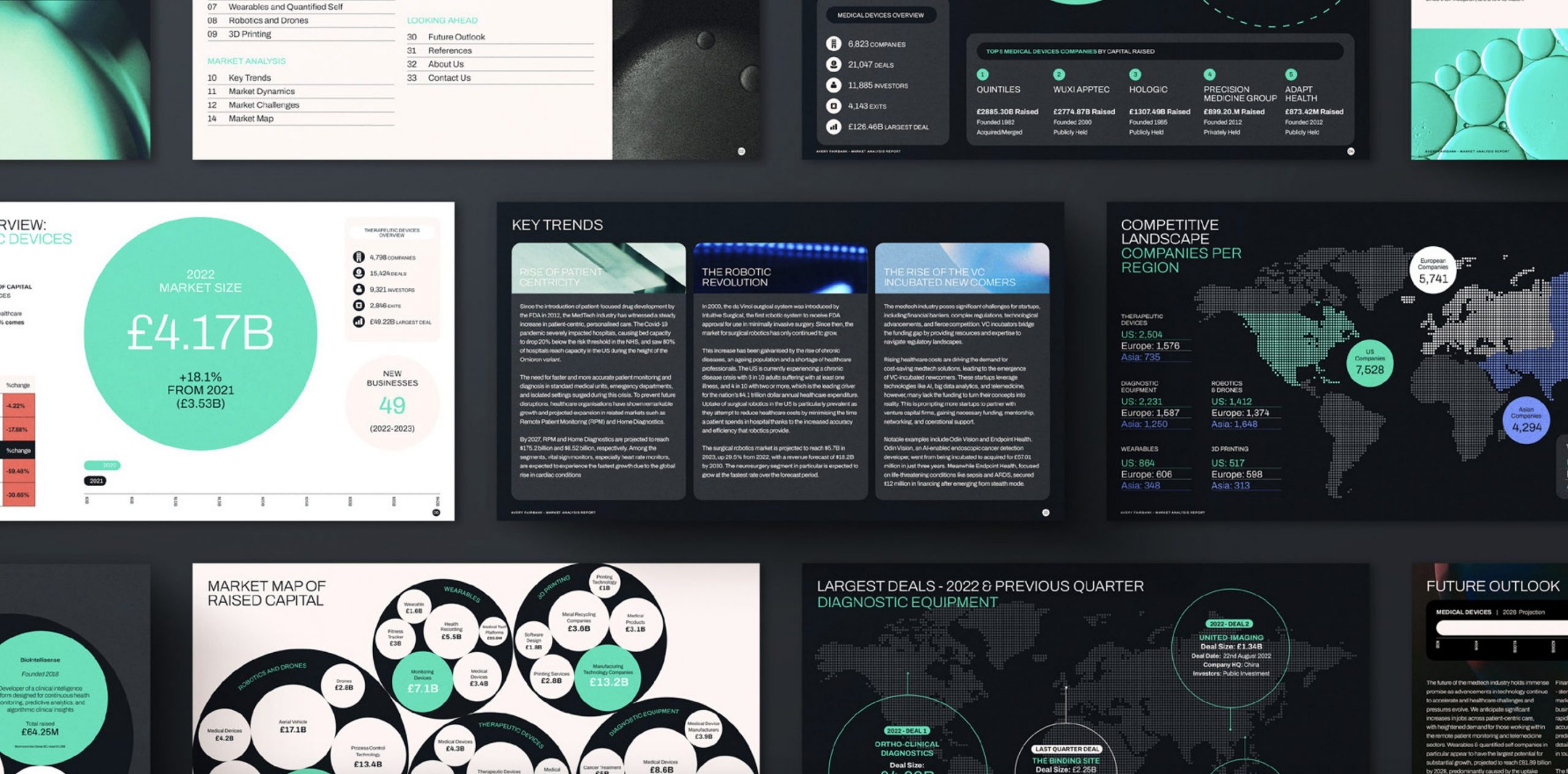July 13, 2023
The Medical Technology market worldwide is projected to grow by 4.91% (2023-2027) resulting in a market volume of $701.90bn in 2027. This will naturally result in a steep increase in demand for top talent.
As this demand grows, companies will need to rethink their traditional requirements for employees lest they risk losing out to competitors in an increasingly saturated market. A PHD may well have been a precursor to success for a potential candidate in a pre-algorithmic, pre-advanced machine learning landscape, but the needs and requirements within the MedTech industry are changing and leadership needs to ensure that attitudes and job vacancy specifications keep pace with this change.
One of the best ways for leaders to prevent cross-company candidate cannibalisation is to consider unconventional talent. They might even discover that this lies in external industries.
The Evolution of MedTech Recruitment
According to GlobeNewsWire, the global medical device market is expected to reach an estimated $466.5 billion by 2027, and is forecast to grow at a CAGR of 4.8% from 2022 to 2027, happily resulting in increased buoyancy within the job market. The US Bureau of Labor Statistics have even projected a 4% growth in employment within the medtech industry from 2020 to 2030 in the US alone.
However, increased demand will not necessarily correlate to an increase in typically qualified candidates. Previously, if you wanted a career within the medtech space, a PhD in a relevant field such as biology or chemistry and prior experience within the industry was the bare minimum required to be considered for recruitment.
However, the need for this requirement may have to be reevaluated as according to Acara Solutions, the expected availability of skilled technicians, including master machinists, floor leads, programmers, and manufacturing engineers does not meet the projected future demand. Shannon Mills, Senior Director of FTI Consulting’s Supply Chain practice, said “the push for college degrees and the societal downplaying of skilled labour over the course of the past 20 years has reduced the numbers of young workers entering this space.”
Many companies in the sector have now realised that looking exclusively within the medtech industry for top talent will significantly reduce their options, making recruitment a much more time consuming and difficult process. For medtech startups in particular, this will make recruitment especially challenging as they do not have the same time or money to invest into their recruitment as larger companies do.
By expanding recruitment to other industries, medtech companies position themselves favourably to keep up with their competitors as they can access new, previously overlooked talent pools.

The Benefits of Considering Unconventional Talent
Fresh Perspectives
There are many benefits to looking beyond the medtech sector to source talent. One of the most universally applicable benefits would be the new perspectives people from external industries can bring to a company. A study by the Boston Consulting Group found that diverse teams, including those with employees from different industries and backgrounds, were more innovative and better at problem-solving than homogeneous teams.
New perspectives influence current team members to think in new ways and be more creative in their work, spurring them on to challenge the current ways of working in an effort to become more efficient and innovative. Boston Consulting Group also discovered that companies with below average diversity scores reported 26% average innovation revenue, compared to the 45% average innovation revenue reported by companies with above average diversity scores.
Utilising a more creative approach sparks new ideas for product development, a key area of any medtech business, leading to medical devices being developed that are more effective and user-friendly than previous iterations.
Access to New, Untapped Talent Pools
Another benefit to considering unconventional candidates is the access to new, previously untapped talent pools from other industries where individuals possess a range of transferable skills and experience that could be put to use within the world of MedTech.
For example, a candidate who has previous experience in software development or coding would bring programming skills that can be applied to developing AI programmes to aid production. This is especially relevant as AI is increasingly used for various applications ranging from predicting when equipment will require maintenance, all the way through to quality control, production scheduling and supply chain management.
A study from the Journal of Medical Systems found that maintenance prediction AI systems could reduce downtime by up to 40%. In addition to this, a study from the International Journal of Production Research found that production scheduling AI systems could reduce lead times by up to 20%. If a business wants to remain competitive, adoption of these kinds of revolutionary developments will be critical. Hiring people with skills in this and other areas that will improve overall business efficiency will allow for quicker and more effective integration of these systems.
Collaboration with Other Industries
Medtech by its very definition is an industry of mergers. The health sector’s digital arm has only grown over the past decade and is on track to accelerate at pace, with advancements in many areas of tech and IoT leading to integration with more traditional methods of medicinal delivery and diagnostics. In this vein, health companies are increasingly joining forces with companies from other industries like robotics and consumer goods, either through mergers and acquisitions or partnerships.
A prime example of this is Stryker Corporation’s acquisition of communication and workflow optimization software developer, Vocera Communications, in January 2022 for $3.09 billion.
Stryker is one of the three largest competitors in reconstructive orthopedic implants, and holds the leadership position in operating room equipment. An investment of this magnitude, from such a large player in the medical devices industry must be seen as a directional indicator for the continued merger of medical devices and equipment and health tech.As this integration continues to escalate, the need for a cross-pollination of candidates from more digital industries will also increase. MedTech leaders should therefore try to keep an open mind when writing job descriptions, and acknowledge that some roles may not require the same education, certifications, or experience, as others within the organisation.
Conclusion
The medtech market is rapidly evolving and is currently experiencing exponential demand for new talent. For businesses to attract and retain top quality candidates, they must broaden their scope of recruitment to other industries to access new skills and hire non-traditional candidates to fill their job vacancies.
By diversifying recruitment practices and bringing in people from other industries, medtech companies can identify new opportunities for collaboration and innovation, leading to the long-term success of their business.

Published on 13-07-2023


